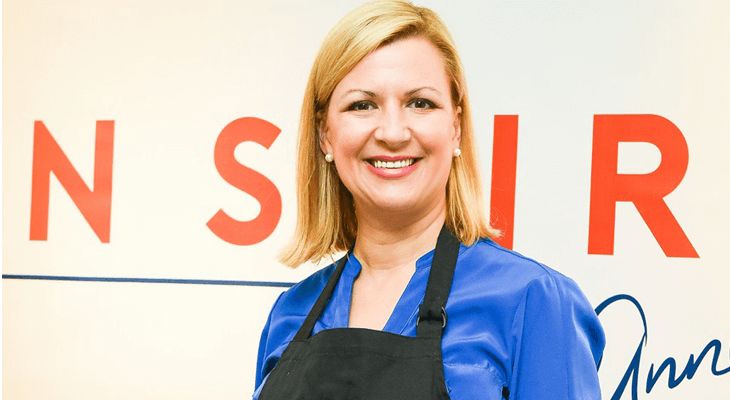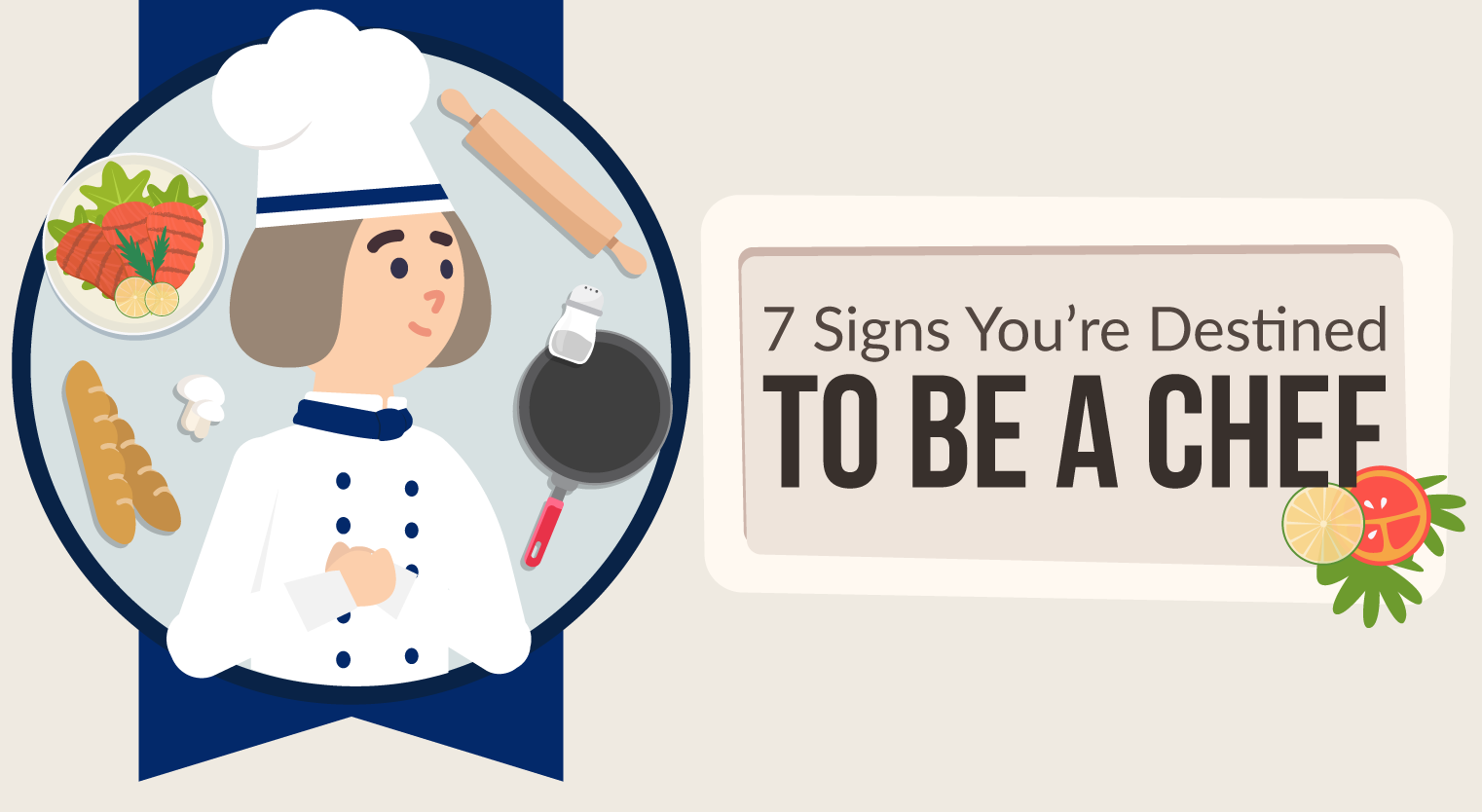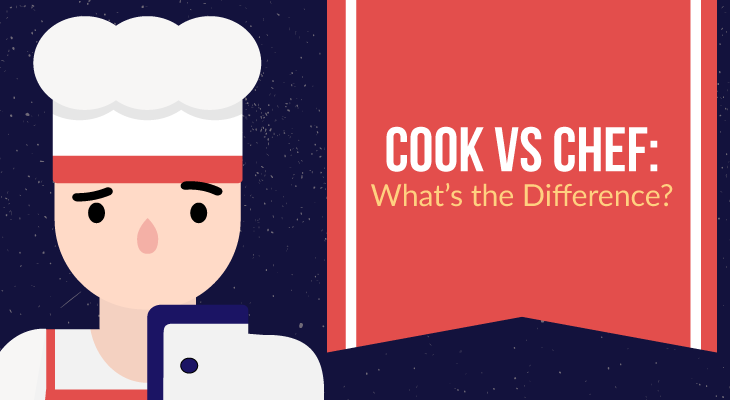So You Wanna Be a Chef? Here's What Anna Olson Has to Say
We sat down with culinary master, Anna Olson to dig out everything that you should know if you aspire to be a chef!
Updated 17 Feb 2017

Master of the pastry world, celebrity Chef Anna Olson was recently in town as part of her “Inspired with Anna” tour at Samplings on the Fourteenth, Berjaya Times Square Hotel. Hailing from Canada, the versatile chef with a genuine flair for baking packs a set of awe-inspiring skills up her sleeve.
 Image credit: ontariospace.com
Image credit: ontariospace.com
Aside from reaching out to the world with a dash of magic on her signature dishes (read: muffins, meringue, or apple pies), the professionally trained pastry chef is not only an esteemed host for “Bake with Anna Olson” on Food Network Canada, she’s also the author for several cookbooks, a famed restaurateur as well as a talented violinist, all packed up her rack!
Much thanks to the Asian Food Channel (AFC) and our friends at Berjaya University College of Hospitality (BUCH), we popped 10 questions to the culinary guru herself during the dinner event for an exclusive interview.
In between Anna’s sweet romance with Malaysian cuisine and her take on the necessity of attending culinary school, the baking sweet heart also bestowed her words of wisdom to aspiring chefs. Read on to find out more.
 Image credit: asianfoodchannel.com
Image credit: asianfoodchannel.com
#1. Thank you for having a career chat with us, Anna. Please tell us more about yourself.
I’m an ongoing student of food and cooking who enjoys great meals with my husband but on a more personal level, I can share that cooking and baking are at the heart of me. I love cooking to share and whether it’s creating a new recipe for TV or a book, cooking for a professional event, or simply making supper for my family, I find joy in the sharing.
#2. What is the best (and worst) part of being a chef?
I feel the best part about being a chef is the evolution of your culinary identity.From the very first recipes and cookbooks that you find yourself drawn to, you begin shaping and developing this identity that defines you as a chef. With each apprenticeship, you decide which are the recipes, skills and management techniques you take into your own identity (and you will also reject some, too). That process never ends – I am still evolving my own culinary identity.
And the worst part about being a chef is the unrelenting work schedule. Long hours are the norm, and you have to work when everyone else gets to “play”: evenings, weekends, holidays.

#3. What are some of the things one can expect from being a chef?
It sounds cliché to say this, but expect the unexpected. Keep your eyes open for new opportunities. When I went to cooking school, I thought I would simply end up being a chef or pastry chef of a restaurant. Little did I know that I would also discover other exciting avenues to the industry: retail bakery ownership, wedding cake décor, catering, recipe development, television cookery, cookbook writing, food styling, product development and so much more!
#4. How do I know if a career as a chef is “the one” for me?
I have found that - over years of having apprentices come work for me - students mostly learn early on if the industry is for them. The long hours, physical work, bustle, and unglamorous environment (a restaurant kitchen is rarely as pretty as the dining room!) seem to either immediately hook people, or send them running. If you haven’t spent a shift in a professional kitchen, be sure to give it a whirl!
Apply for university with EduAdvisor
Secure scholarships and more when you apply to any of our 100+ partner universities.
Start now#5. In your opinion, is passion enough to drive aspiring chefs to succeed in culinary school?
Passion is made of a number of important components in order to be complete. Passion needs to include dedication, interest, sacrifice, hard work, patience and common sense. If a student’s passion has all of these characteristics then that is all that is needed, because the rest will follow. There is not some inherent gift for cooking or baking that has to be there – the passion in its completeness will lead them there.
 Image credit: asianfoodchannel.com
Image credit: asianfoodchannel.com
#6. There has been debate on the necessity of attending culinary school due to the costs, demanding job scope and low starting wages. What is your personal stance on this?
I went to culinary school and can comprehend the financial stress – I had to take out a substantial loan AND work while attending culinary school. It was a serious commitment. The toughest part for me was when I had to start paying back the loan starting 6 months from graduation, but I was earning low apprentice wages, as one would expect. I very much disagree with the low starting wages for such a skilled trade, but until the consumer is willing to pay more for their food when dining out, I sadly doubt we’ll see a big change anytime soon.
That said, I have witnessed those with culinary diplomas rise through the ranks faster than their counterparts who have only on-the-job training, and their potential for management level positions is stronger. But if you refer to my thoughts on passion, if the traits are all there, then success with or without schooling shouldn’t be a major factor.
#7. What potential growth do you see in our Malaysian culinary scene?
I see great potential growth on the international scene when it comes to Malaysian cuisine. It’s not often that you come across Malaysian restaurants internationally, yet the cuisine is so distinctive and refined – I feel the global palate is ready for the flavours, colours and textures that are so distinctive.
I do like that when I visit Malaysia, I see a fundamental respect and easy accessibility to classic Malaysian dishes like “Nasi Lemak” and all the different “laksas”.

#8. What’s your favourite food from our Malaysian cuisine?
I adore “Kuih Lapis” and I can’t think of any other culture, Asian or otherwise, that has such a distinctive dessert style. And other Malaysian treats like “Onde Onde” are also a personal favourite.
#9. What’s next on your agenda? Are there any other projects in the works that you can share with our readers?
My brand new series, Inspired with Anna Olson, starts airing Fridays starting July 29th on Asian Food Channel. I also have a new baking cookbook out this fall, and more episodes of Bake will be coming your way.
#10. Before we bounce, any advice that you’d like to share with students who aspire to be a chef?
Be patient and don’t rush the process, but take time to enjoy the journey. Some want to hurry up and become an executive chef, but with that comes a large burden of responsibility and sometimes even little time spent cooking. Enjoy each day for what it is and be aware of what you learn – you are learning every single day… how lucky!
 Image credit: asianfoodchannel.com
Image credit: asianfoodchannel.com
Thank you again Anna for the illuminating pieces of culinary advice! To stalk follow her, drop by her website and don’t forget to hit the like button on her Facebook page!






